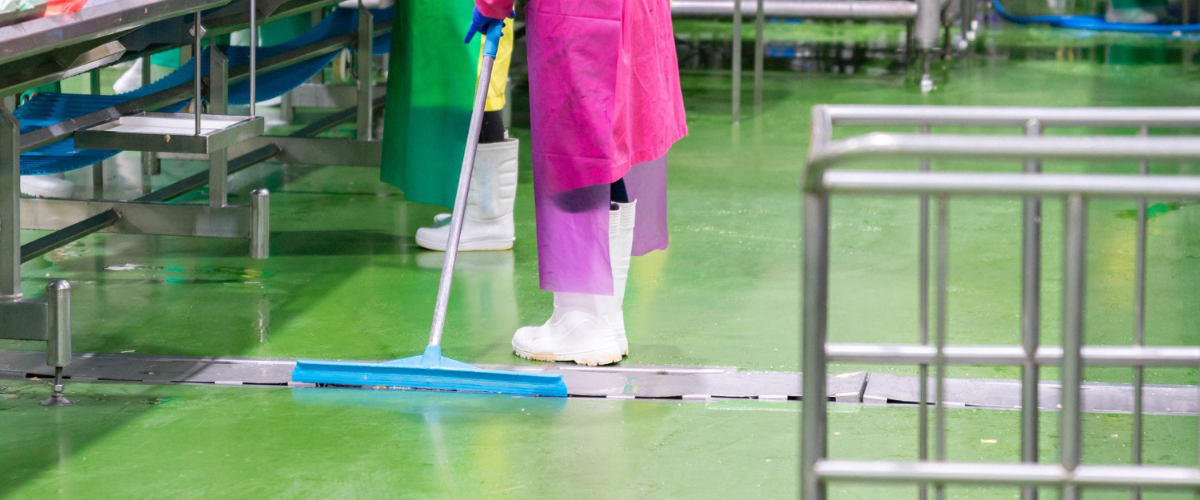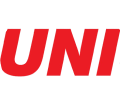Production Cleaning & Why It Is Important (How Industrial Cleaning Company Helps?

You’ve probably pictured a factory floor as a loud, chaotic, and grubby place. But for some of the world’s most advanced products like semiconductors, medical devices, and high-tech electronics, the real action is happening in silence and sterility.
In these manufacturing factories, the emphasis of being spotless is a fundamental and non-negotiable part of the manufacturing process itself.
Let’s uncover the whats, whys and how production cleaning is a make-or-break factor for your business.
We’ll cover everything from regulatory compliance to safeguarding your products and explain how partnering with a specialised industrial cleaning company can help you get it right!
What is Production Cleaning?
Think about the difference between cleaning your house and cleaning a laboratory. Production cleaning is more like the latter. It’s a highly detailed, systematic process designed for manufacturing and production environments specifically tailored to:
- Stop contamination that could ruin sensitive equipment or products.
- Meet strict industry rules and standards.
- Maintain controlled environments like cleanrooms.
The goal is to get rid of every kind of contaminant—from a single dust particle to chemical residues—that could compromise the quality of your final product.
Why Should You Care About Production Cleaning?
Production cleaning is more of a strategic advantage than a chore for your business-running factory as it directly impacts your bottom line, protects your reputation, and ensures your products meet the highest standards:
1. It’s Not a Suggestion, It’s the Law
In regulated industries like medical devices and pharmaceuticals, cleanliness isn’t optional. Bodies like the Medical Device Authority (MDA) and the National Pharmaceutical Regulatory Agency (NPRA) set strict, non-negotiable standards.
For aerospace, companies often adhere to international standards like AS9100, with certification bodies like SIRIM QAS International providing local accreditation.
Ignoring these can lead to devastating fines, production shutdowns, and the loss of critical certifications. A strong cleaning program is your shield against these legal and financial risks, keeping you compliant and open for business.
2. The Difference Between Profit and Waste
Even the smallest particle can wreak havoc on sensitive products. A microscopic piece of dust can short-circuit a semiconductor, and a tiny bit of residue can render a medical instrument unsafe.
Proactive cleaning is your first line of defense, drastically reducing defects, minimising expensive recalls, and protecting the integrity of every single product you ship.
3. A Safe Team is a Productive Team
A clean facility is a safe facility. By meticulously controlling dust, chemical residues, and other contaminants, you create a healthier and safer environment for your employees. This commitment to safety reduces the risk of accidents and exposure to harmful substances, demonstrating that you value your team as much as your products.
4. Your Reputation on Display
When a client, auditor, or regulator walks through your facility, what they see tells them everything they need to know. A pristine production floor sends a powerful message: you’re committed to quality, safety, and excellence. It builds trust with partners, solidifies your brand reputation, and ensures you’re always prepared for an audit.
What Happens When You Don’t Clean Properly?
Cutting corners on production cleaning might seem like a cost-saving measure, but it’s a gamble with potentially catastrophic results. The hidden costs of a dirty facility can quickly outweigh any savings, putting your entire business at risk.

1. Product Recall
For industries producing medical devices, food products, or sensitive electronics, a single oversight or contamination can trigger a widespread product recall, damaging your brand’s reputation for years and potentially exposing you to legal action. It’s a crisis that no business wants to face.
2. Unscheduled Shutdown
When your high-tech machinery is your company’s engine, a little grime can act like a slow-moving virus. Dust and residue clog filters, seize moving parts, and lead to sudden, unexpected breakdowns. These are production-halting events that delay orders, frustrate clients, and directly impact your bottom line.
Your Cleaning Checklist: Daily Tasks vs. Deep Cleaning
Effective cleaning needs a structured plan that combines quick, routine tasks with more intensive deep cleaning.
Routine Cleaning (Daily/Weekly)
These are your everyday tasks to maintain basic cleanliness.
- Surfaces: Wiping down surfaces, workbenches, and equipment.
- Floors: Sweeping or vacuuming to remove dust and debris.
- Waste: Properly disposing of all waste.
Periodic Deep Cleaning (Monthly/Quarterly)
These are more in-depth tasks that go beyond the daily routine.
- Decontamination: Deep cleaning high-risk areas.
- Equipment: Taking apart and cleaning machinery to remove internal buildup.
- Air Systems: Cleaning air ducts and vents to improve air quality.
DIY Cleaning vs. Hiring Professionals
When it comes to production cleaning, there’s a world of difference between a quick wipe-down and a specialised, strategic process.
Many businesses consider handling it in-house, but the risks often far outweigh the perceived savings. Here’s why bringing in the experts is a strategic decision, not an unnecessary expense:
1. The Risks of DIY
Using your own staff for complex cleaning comes with major risks:
Using your own staff for complex cleaning tasks might seem simple, but it’s a gamble that can backfire in costly ways.
- Lack of Specialised Expertise
Your team is great at what they do, but are they trained in ISO 14644 cleanroom protocols or the specific agents needed to avoid damaging sensitive components? Without this expertise, you risk cross-contamination and even permanent damage to your products and equipment.
- Using the Wrong Tools
A standard mop and bucket won’t cut it in a contamination-controlled environment. Professional cleaning requires industrial-grade HEPA vacuums, certified microfibre cloths, and specific cleaning agents that are both effective and non-damaging. Investing in this specialised equipment for a one-off job is rarely cost-effective.
- The Audit Nightmare
An in-house cleaning process often lacks the rigorous, documented procedures required by regulators. When an auditor asks to see your cleaning logs and protocols, a lack of professional documentation can spell serious trouble and lead to fines or a loss of certification.
2. The Peace of Mind of a Professional Partner
There are multiple benefits in partnering with an industrial cleaning company as they provide different types of cleaning services:
- Unmatched Expertise
A professional cleaning team brings deep knowledge of your industry’s unique challenges. They understand the sterile needs of medical device manufacturing, the particle control for semiconductors, and the specific regulations that apply to you. They don’t just clean; they implement a strategic contamination control plan.
- Cutting-Edge Technology
They arrive equipped with the right tools for the job—from industrial-grade vacuums to certified, non-residue cleaning agents—ensuring a deeper, safer clean that a standard team can’t achieve.
- Audit-Ready Processes
Professionals live and breathe compliance. They provide documented, audited processes and detailed cleaning logs, ensuring you are always ready for an inspection and giving you complete peace of mind.
- Seamless Integration
A professional cleaning partner works around your schedule. They can perform deep cleans during off-hours, ensuring minimal disruption and zero downtime for your production line.
Get Your Production Cleaning Right!
Your facility’s cleanliness is a direct reflection of your commitment to quality. Embark on a professional and smart approach to production cleaning, you can protect your products, boost safety, and set your business up for long-term success.
Contact Uni-Hygiene today to take your facility’s cleanliness to the next level with our tailored services.
FAQ
How often should a production facility be cleaned?
The cleaning frequency of a production facility is a strategic decision tailored to your specific operations. While daily routine cleaning such as mopping, wiping down surfaces, and waste disposal—is the bare minimum to maintain a safe working environment, deep cleaning is typically scheduled monthly or quarterly.
The ideal schedule is customised based on your industry’s regulatory requirements, the sensitivity of your products (e.g., semiconductors vs. metal parts), and your production volume. A professional service can conduct a site assessment to design a bespoke cleaning schedule that minimises risk without disrupting your workflow.
How does production cleaning help with audits?
Professional production cleaning services provide more than just a clean facility—they provide an audit-ready “paper trail.” They furnish detailed cleaning reports, maintain meticulous cleaning logs, and operate under documented Standard Operating Procedures (SOPs).
This creates clear evidence that you are not only meeting but exceeding cleanliness and safety regulations from bodies like the Medical Device Authority (MDA) and international standards such as ISO 9001. Furthermore, it demonstrates full compliance with all training requirements. When an auditor arrives, this comprehensive documentation makes proving compliance a straightforward, stress-free process.
What cleaning agents are safe for sensitive environments?
In sensitive environments like cleanrooms and electronics manufacturing, professionals use specific, certified cleaning agents. These are not your typical off-the-shelf cleaners.
They are carefully selected to be non-corrosive, non-outgassing, and formulated to leave zero residue. Their purpose is to effectively remove contaminants without introducing any new ones, such as perfumes, dyes, or particulates that could harm expensive equipment or compromise product quality.
What are the risks of using only internal staff for cleaning?
While using internal staff for cleaning might seem convenient, it presents significant risks. Your team likely lacks the specialised training required to handle contamination control, such as the proper techniques for preventing cross-contamination or cleaning sensitive electronics.
Without the right industrial-grade equipment and certified cleaning agents, you risk incomplete cleaning, causing damage to delicate machinery, and failing to meet the strict standards required by industry regulators. Ultimately, this can jeopardise your compliance and put your business at financial and reputational risk.




